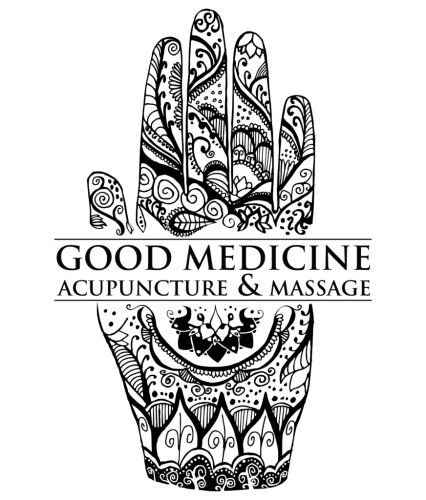Acupuncture is a safe and effective medicine that can be used through any stage of pregnancy, from troubleshooting fertility issues to dealing with postpartum care.
It is important that you fully understand why and when to use acupuncture as a care routine for your pregnancy. It comes with many well-documented benefits and can be your secret weapon to beating common pregnancy woes.
Acupuncture can be safely used to treat infertility issues, early pregnancy (1st trimester), mid-pregnancy (2nd & 3rd trimesters), late pregnancy (4th trimester), birth, and postpartum.
Throughout your pregnancy, you can expect to experience a range of symptoms even as early as implantation.

Implantation Symptoms
Many implantation symptoms during pregnancy will appear to be very similar to menstrual symptoms including:
- cramping
- nausea
- mood swings
- tender breasts
- and even bleeding (spotting)
If you are in the process of trying to get pregnant these symptoms might throw you off. Since they are so similar to menstrual symptoms, you may think you’re just starting your period; however, if you think you’ve started and noticed that you’re only spotting, it may be time to grab that pregnancy test!
A great way to track your period and determine if you’re running late is to try out a menstrual tracking app. Our favorite is Clue. You can track symptoms and monitor your fertile windows. How cool is that?
First Pregnancy – Common Symptoms
There are many, many symptoms that you can expect to encounter throughout your pregnancy.
Some are very common, such as morning sickness, back pain, or fatigue. Other symptoms are surprising such as sciatica, congestion, periods, and insomnia.
Some of the most common pregnancy symptoms treated with acupuncture include:
- back pain
- pelvic pain
- cervical ripening
- nausea
- headaches
These are some of the more common, but acupuncture can treat nearly any pregnancy related symptom you experience.
Headache during pregnancy
Headaches during pregnancy are very common due to the fact that the body is going through some significant changes. A complete rearranging of your hormones, combined with a surge in blood flow, and the stress of your physical changes create a perfect recipe for not only headaches but also migraines.
Luckily, acupuncture has been consistently proven to be effective for headaches during pregnancy.
Pregnancy cramps & nausea
Cramps? While pregnant! What a bum deal. You think you get the joy of no periods for 9 months but you’re still dealing with the same ole pain. This is primarily because your uterus is expanding. Whether you are pregnant or not, acupuncture can help with cramping.
Nausea is a pretty common one to expect but no worries, you can also use acupuncture to help with nausea.
Depression during pregnancy
Depression is unfortunately common. As much as 86% of women report depression during their pregnancy.
Working with an acupuncturist can reduce your depression symptoms during and after your pregnancy and get you back on track.
Can acupuncture induce labor?
Acupuncture is often used by women nearing their due date hoping to induce labor. It is very important to make a distinction here that a trained acupuncturist does not induce labor, but rather uses points to soften (or ripen) the cervix.
Interestingly enough, pregnancy doesn’t typically follow the 9-month standard and calculating your exact due date can be a little more complicated.
Typically pregnancy lasts 40 weeks and is calculated from your last period. You would add nine months and seven days to the start date of your last menstrual period.
Use this helpful pregnancy due date calculator to determine when you should be expecting.
Early Signs of Labor
Aside from the telltale signs of labor such as contractions and your water breaking, you should also watch for a number of other symptoms.
For example, you can expect to feel the “baby” drops (the baby adjusts down the pelvis) and see an increase in vaginal discharge that is pinkish.
Be mindful of Braxton-Hicks Contractions which are considered “false labor”.
They typically occur around the 3rd trimester and can be scary if you’re not ready. Braxton-Hicks Contractions are irregular (do not get closer together with time). They are weaker than real contractions and typically last less than 2 minutes.
It is thought that these contracts are indicators that the body is preparing for labor. Although it may throw you for a loop, it is reassuring that you’re physically getting ready for labor.
Natural Postpartum Care for Mom
It is just as important to care for yourself after your pregnancy is complete. After all, your child depends on your continued health so you can enjoy your lives together.
Postpartum issues include:
- Postpartum bleeding or “lochia” (aka the longest period of your life)
- Tearing in the perineum (a common issue with natural birth)
- Constipation
- Diastasis recti (a separation of the abdominal muscles)
- Postpartum depression (which can be more severe than pregnancy depression) If you suspect you’re experiencing this, take this helpful and brief self-assessment to determine if you need further care.
Consult with your acupuncturist, massage therapist, or doula for a treatment plan for these issues. Many require basic physical therapy, smart dieting, or consistent care to keep these from becoming chronic issues.

Recent Comments